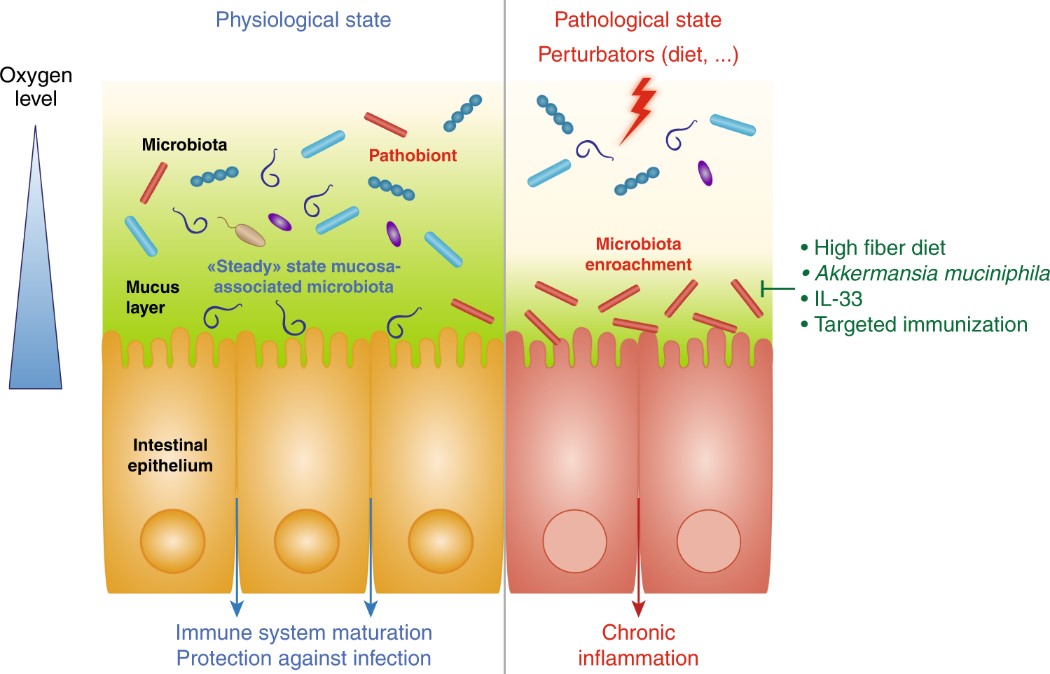Gut Microbiota and Host Interaction Study
The composition and activity of the gut microbiota codevelop with the host from birth and is subject to a complex interplay that depends on the host genome, nutrition, and lifestyle. Current technology can reveal many such interactions by combining multi-omic data from both hosts and microbes. Creative Biolabs provides custom services to assess changes in the gut microbiome and host gene expression. A powerful basis of multi-omics analyses and host transcriptomics offers insight into gut microbiota and host interaction.
Background
The intestinal microbiota is a vast and complex community of microorganisms. The human gastrointestinal tract is home to trillions of microbes that make up the gut microbiota. These microbes interact with the host to affect the host's physiological responses. The internal environment of the host changes frequently, leading to congruent alterations of the gut microbiota, and the vital movements of the host influence the gut microbiota abundance. Accumulating evidence indicates that the gut microbiota can participate in the maturation and function of the innate immune system, while also playing many complex roles in the host's defense against pathogens. This beneficial equilibrium between the host and its microbiota, or symbiosis, can also turn detrimental and participate in the development and/or the worsening of chronic inflammatory diseases.
 Fig.1 Host/microbiota interaction at the mucosal surface.1
Fig.1 Host/microbiota interaction at the mucosal surface.1
Gut Microbiota and Host Interaction Study
The roles of the host genome and their interplay with the microbiome are becoming a rapidly evolving focus in human disease research. Integrating microbiome and host transcriptome is a burgeoning field with significant potential for elucidating the host-microbial interplay that drives human health and disease.
With the development and application of metagenomics, metatranscriptomics, metaproteomics, and metabolomics, it is possible to identify significant microbial data able to support diagnosis and treatments in human health. However, as discussed in the previous sections, every single approach has in itself some limitations. The integration of multi-omics datasets provides a promising approach to characterizing the composition, functional, and metabolic activity of microbiomes. By high-throughput technologies such as next-generation sequencing and mass spectrometry-based metabolomics, we will comprehensively sequence the microbiome-the metagenome-and associate these data with the genomic, epigenomics, transcriptomic, and metabolic profile of the host.
Host transcriptomics is a powerful approach to identifying both diagnostic and mechanistic immune signatures of diseases. The host transcriptome consists of all the RNA transcripts that are transcribed from the host genome. The two common techniques for transcriptomic profiling are microarrays and RNA sequencing (RNA-seq).
Integrating these datasets of multiple meta-omic and host transcriptomics, Creative Biolabs offers highly customized services to support our clients’ gut microbiota and host interaction study projects. If you are interested in our service, please contact us for further information.
Reference
-
Daniel, Noëmie, Emelyne Lécuyer, and Benoit Chassaing. "Host/microbiota interactions in health and diseases—Time for mucosal microbiology!." Mucosal Immunology 14.5 (2021): 1006-1016. Distributed under Open Access license CC BY 4.0, without modification.
For Research Use Only | Not For Clinical Use


 Fig.1 Host/microbiota interaction at the mucosal surface.1
Fig.1 Host/microbiota interaction at the mucosal surface.1
 Download our brochure
Download our brochure